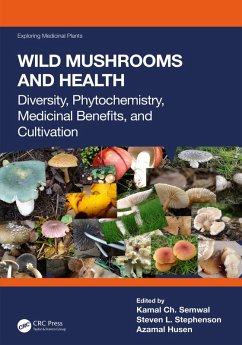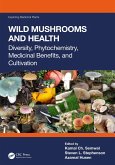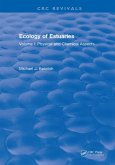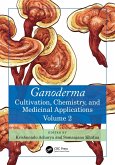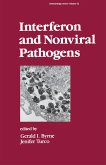Wild Mushrooms and Health (eBook, ePUB)
Diversity, Phytochemistry, Medicinal Benefits, and Cultivation
Redaktion: Semwal, Kamal Ch.; Husen, Azamal; Stephenson, Steven L.
170,95 €
170,95 €
inkl. MwSt.
Sofort per Download lieferbar

85 °P sammeln
170,95 €
Als Download kaufen

170,95 €
inkl. MwSt.
Sofort per Download lieferbar

85 °P sammeln
Jetzt verschenken
Alle Infos zum eBook verschenken
170,95 €
inkl. MwSt.
Sofort per Download lieferbar
Alle Infos zum eBook verschenken

85 °P sammeln
Wild Mushrooms and Health (eBook, ePUB)
Diversity, Phytochemistry, Medicinal Benefits, and Cultivation
Redaktion: Semwal, Kamal Ch.; Husen, Azamal; Stephenson, Steven L.
- Format: ePub
- Merkliste
- Auf die Merkliste
- Bewerten Bewerten
- Teilen
- Produkt teilen
- Produkterinnerung
- Produkterinnerung

Bitte loggen Sie sich zunächst in Ihr Kundenkonto ein oder registrieren Sie sich bei
bücher.de, um das eBook-Abo tolino select nutzen zu können.
Hier können Sie sich einloggen
Hier können Sie sich einloggen
Sie sind bereits eingeloggt. Klicken Sie auf 2. tolino select Abo, um fortzufahren.

Bitte loggen Sie sich zunächst in Ihr Kundenkonto ein oder registrieren Sie sich bei bücher.de, um das eBook-Abo tolino select nutzen zu können.
This book provides an overview of wild medicinal mushrooms covering taxonomy, distribution, ethnomycology, ecology, and their potential medicinal uses. It will be helpful in establishing reports on wild mushrooms species and their potential uses in new drug discovery and bioactive molecules.
- Geräte: eReader
- mit Kopierschutz
- eBook Hilfe
Andere Kunden interessierten sich auch für
![Wild Mushrooms and Health (eBook, PDF) Wild Mushrooms and Health (eBook, PDF)]() Wild Mushrooms and Health (eBook, PDF)170,95 €
Wild Mushrooms and Health (eBook, PDF)170,95 €![Ganoderma (eBook, ePUB) Ganoderma (eBook, ePUB)]() Ganoderma (eBook, ePUB)51,95 €
Ganoderma (eBook, ePUB)51,95 €![Ecology of Estuaries (eBook, ePUB) Ecology of Estuaries (eBook, ePUB)]() Michael J. KennishEcology of Estuaries (eBook, ePUB)226,95 €
Michael J. KennishEcology of Estuaries (eBook, ePUB)226,95 €![Herbal Medicine (eBook, ePUB) Herbal Medicine (eBook, ePUB)]() Herbal Medicine (eBook, ePUB)195,95 €
Herbal Medicine (eBook, ePUB)195,95 €![Ganoderma (eBook, ePUB) Ganoderma (eBook, ePUB)]() Ganoderma (eBook, ePUB)51,95 €
Ganoderma (eBook, ePUB)51,95 €![Interferon and Nonviral Pathogens (eBook, ePUB) Interferon and Nonviral Pathogens (eBook, ePUB)]() Gerald. I. BryneInterferon and Nonviral Pathogens (eBook, ePUB)180,95 €
Gerald. I. BryneInterferon and Nonviral Pathogens (eBook, ePUB)180,95 €![Mushrooms (eBook, ePUB) Mushrooms (eBook, ePUB)]() Mushrooms (eBook, ePUB)62,95 €
Mushrooms (eBook, ePUB)62,95 €-
-
-
This book provides an overview of wild medicinal mushrooms covering taxonomy, distribution, ethnomycology, ecology, and their potential medicinal uses. It will be helpful in establishing reports on wild mushrooms species and their potential uses in new drug discovery and bioactive molecules.
Dieser Download kann aus rechtlichen Gründen nur mit Rechnungsadresse in A, B, BG, CY, CZ, D, DK, EW, E, FIN, F, GR, HR, H, IRL, I, LT, L, LR, M, NL, PL, P, R, S, SLO, SK ausgeliefert werden.
Produktdetails
- Produktdetails
- Verlag: Taylor & Francis eBooks
- Seitenzahl: 312
- Erscheinungstermin: 1. September 2023
- Englisch
- ISBN-13: 9781000918434
- Artikelnr.: 68379561
- Verlag: Taylor & Francis eBooks
- Seitenzahl: 312
- Erscheinungstermin: 1. September 2023
- Englisch
- ISBN-13: 9781000918434
- Artikelnr.: 68379561
- Herstellerkennzeichnung Die Herstellerinformationen sind derzeit nicht verfügbar.
Kamal Ch. Semwal is an Associate Professor in the Department of Biology of the College of Sciences at Eritrea Institute of Technology in Asmara, where he teaches interdisciplinary subjects in the botanical sciences. He received his Ph.D. from HNB Garhwal University (a Central University), BGR Campus Pauri, Srinagar Garhwal, Uttarakhand, India, in 2004. He began his carrier as a Research Associate at the Directorate of Mushrooms in Solan (Himachal Pradesh) and later taught at Gondar University and Mekelle University in Ethiopia (East Africa). His research on mushrooms is well-recognized and has been cited numerous times in various research journals. He is the author or coauthor of several dozen papers in peer-reviewed journals along with book chapters, and review articles. He also served as a co-editor of a book entitled "Ecosystem and Environmental Pollution, published by Discovery Publishing House (P) Ltd, India, and co-investigator of a research project "Collection, identification, documentation of wild edible and medicinal mushrooms of Garhwal Himalaya of Uttarakhand" funded by UCOST, Dehradun, India. His papers have considered a number of disciplines of botany, particularly the diversity, taxonomy, and ecology of wild mushrooms in the Northwestern Himalayas of India. He has more than 18 years of experience in fungal taxonomy and ecology. He has described several species of wild mushrooms new to science and is currently serving as a reviewer for many highly respected international scientific journals throughout the world. Steven L. Stephenson is currently a Research Professor in the Department of Biological Sciences at the University of Arkansas, where he teaches courses in plant biology, forest ecology, and plant ecology. He received his Ph.D. from Virginia Polytechnic Institute and State University (Virginia Tech) in 1977 and taught at Fairmont State College (now University) for 27 years before moving to the University of Arkansas in 2003. He was a Senior Fulbright Scholar at Himachal Pradesh University in 1987, a Visting Scientist at the Australian Antarctic Division in 1995, and the William Evens Fellow at the University of Otago in New Zealand in 2003. His studies of myxomycetes (slime molds) and fungi have taken him to all seven continents and every major type of terrestrial ecosystem. He is a Fellow of the Mycological Society of America and the author or coauthor of 18 books and more than 480 book chapters and papers in peer-reviewed journals. His more important books include The Kingdom Fungi: The Biology of Mushrooms, Molds, and Lichens (2010), Mushrooms of the Southeastern United States (2017), and Secretive Slime Moulds: Myxomycetes of Australia (2021). Azamal Husen served as Professor & Head, Department of Biology, University of Gondar, Ethiopia and is a Foreign Delegate at Wolaita Sodo University, Wolaita, Ethiopia. Earlier, he was a Visiting Faculty of the Forest Research Institute, and the Doon College of Agriculture and Forest at Dehra Dun, India. His research and teaching experience of 20 years involves studies of biogenic nanomaterial fabrication and application, plant responses to environmental stresses and nanomaterials at the physiological, biochemical and molecular levels, herbal medicine, and clonal propagation for improvement of tree species. He has conducted several research projects sponsored by various funding agencies, including the World Bank (FREEP), the National Agricultural Technology Project (NATP), the Indian Council of Agriculture Research (ICAR), the Indian Council of Forest Research Education (ICFRE); and the Japan Bank for International Cooperation (JBIC). He received four fellowships from India and a recognition award from the University of Gondar, Ethiopia, for excellent teaching, research, and community service. Husen has been on the Editorial board and the panel of reviewers of several reputed journals published by Elsevier, Frontiers Media, Taylor & Francis, Springer Nature, RSC, Oxford University Press, Sciendo, The Royal Society, CSIRO, PLOS, MDPI, John Wiley & Sons and UPM Journals. He is on the advisory board of Cambridge Scholars Publishing, UK. He is a Fellow of the Plantae group of the American Society of Plant Biologists, and a Member of the International Society of Root Research, Asian Council of Science Editors, and INPST. To his credit are over 200 publications; and he is Editor-in-Chief of the American Journal of Plant Physiology. He is also working as Series Editor of 'Exploring Medicinal Plants', published by Taylor & Francis Group, USA; 'Plant Biology, Sustainability, and Climate Change', published by Elsevier, USA; and ' Smart Nanomaterials Technology', published by Springer Nature Singapore Pte Ltd. Singapore.
Biodiversity of Medicinal Mushrooms of India and Preliminary Screening for
Bioactive Molecules. Distribution, Ecology and Taxonomy of Medicinal
Mushrooms. Bioactive Profile of Xylaria of Southwest India. Ethnomycology,
Bioprospection and Uses of Mushrooms in Costa Rica. Medicinal Mushrooms of
Kerala State, India: Diversity and Systematics, India. Growing Your Own
Effective Medicines - Cultivation of Medicinal Mushrooms and Fungi.
Amanita: Toxicity, Edibility, Diversity, and Phytochemistry. Ethnomycology:
Diversity and Utilization of Medicinal Mushrooms in the Philippines.
Medicinal Mushrooms - Citizens' Perspective in Himalaya. Diversity of
Macrofungi in North East India with Special Reference to Medicinal
Macrofungi. Wild Medicinal Mushrooms of Northwest Himalayas of Jammu &
Kashmir, and Ladakh: Their Traditional and Modern Applications. Taxonomy,
Diversity, Ecology, Ethnomycology, Medicinal Aspects, Biotechnology, and
Phytochemistry of Sri Lankan Mushrooms. Taxonomy, Distribution, and
Ethnomycological Knowledge of Calostoma Spp. (Calostomataceae) from
Northern Borneo, Malaysia. Diversity, Distribution and Ecology of
Wild/Medicinal Mushrooms in Bangladesh. Current Apprises on Medicinal
Properties of Some Wild Mushrooms . Diversity and Ecology of Wild Mushrooms
in Ethiopia. Mushroom- Biotechnology: Recent Trends and Applications. Use
of Mushrooms in Traditional Medicine in China. Taxonomy, Diversity,
Mycochemical and Medicinal Aspects of Wood Decay Fungi from Andhra
Pradesh's Eastern Ghats Region of India. Hidden Treasure of Himalayan
Forests: Mushrooms with Curative Potential. Some Uncommon Traditionally
Important Mushrooms of Uttarakhand, India.
Bioactive Molecules. Distribution, Ecology and Taxonomy of Medicinal
Mushrooms. Bioactive Profile of Xylaria of Southwest India. Ethnomycology,
Bioprospection and Uses of Mushrooms in Costa Rica. Medicinal Mushrooms of
Kerala State, India: Diversity and Systematics, India. Growing Your Own
Effective Medicines - Cultivation of Medicinal Mushrooms and Fungi.
Amanita: Toxicity, Edibility, Diversity, and Phytochemistry. Ethnomycology:
Diversity and Utilization of Medicinal Mushrooms in the Philippines.
Medicinal Mushrooms - Citizens' Perspective in Himalaya. Diversity of
Macrofungi in North East India with Special Reference to Medicinal
Macrofungi. Wild Medicinal Mushrooms of Northwest Himalayas of Jammu &
Kashmir, and Ladakh: Their Traditional and Modern Applications. Taxonomy,
Diversity, Ecology, Ethnomycology, Medicinal Aspects, Biotechnology, and
Phytochemistry of Sri Lankan Mushrooms. Taxonomy, Distribution, and
Ethnomycological Knowledge of Calostoma Spp. (Calostomataceae) from
Northern Borneo, Malaysia. Diversity, Distribution and Ecology of
Wild/Medicinal Mushrooms in Bangladesh. Current Apprises on Medicinal
Properties of Some Wild Mushrooms . Diversity and Ecology of Wild Mushrooms
in Ethiopia. Mushroom- Biotechnology: Recent Trends and Applications. Use
of Mushrooms in Traditional Medicine in China. Taxonomy, Diversity,
Mycochemical and Medicinal Aspects of Wood Decay Fungi from Andhra
Pradesh's Eastern Ghats Region of India. Hidden Treasure of Himalayan
Forests: Mushrooms with Curative Potential. Some Uncommon Traditionally
Important Mushrooms of Uttarakhand, India.
Biodiversity of Medicinal Mushrooms of India and Preliminary Screening for
Bioactive Molecules. Distribution, Ecology and Taxonomy of Medicinal
Mushrooms. Bioactive Profile of Xylaria of Southwest India. Ethnomycology,
Bioprospection and Uses of Mushrooms in Costa Rica. Medicinal Mushrooms of
Kerala State, India: Diversity and Systematics, India. Growing Your Own
Effective Medicines - Cultivation of Medicinal Mushrooms and Fungi.
Amanita: Toxicity, Edibility, Diversity, and Phytochemistry. Ethnomycology:
Diversity and Utilization of Medicinal Mushrooms in the Philippines.
Medicinal Mushrooms - Citizens' Perspective in Himalaya. Diversity of
Macrofungi in North East India with Special Reference to Medicinal
Macrofungi. Wild Medicinal Mushrooms of Northwest Himalayas of Jammu &
Kashmir, and Ladakh: Their Traditional and Modern Applications. Taxonomy,
Diversity, Ecology, Ethnomycology, Medicinal Aspects, Biotechnology, and
Phytochemistry of Sri Lankan Mushrooms. Taxonomy, Distribution, and
Ethnomycological Knowledge of Calostoma Spp. (Calostomataceae) from
Northern Borneo, Malaysia. Diversity, Distribution and Ecology of
Wild/Medicinal Mushrooms in Bangladesh. Current Apprises on Medicinal
Properties of Some Wild Mushrooms . Diversity and Ecology of Wild Mushrooms
in Ethiopia. Mushroom- Biotechnology: Recent Trends and Applications. Use
of Mushrooms in Traditional Medicine in China. Taxonomy, Diversity,
Mycochemical and Medicinal Aspects of Wood Decay Fungi from Andhra
Pradesh's Eastern Ghats Region of India. Hidden Treasure of Himalayan
Forests: Mushrooms with Curative Potential. Some Uncommon Traditionally
Important Mushrooms of Uttarakhand, India.
Bioactive Molecules. Distribution, Ecology and Taxonomy of Medicinal
Mushrooms. Bioactive Profile of Xylaria of Southwest India. Ethnomycology,
Bioprospection and Uses of Mushrooms in Costa Rica. Medicinal Mushrooms of
Kerala State, India: Diversity and Systematics, India. Growing Your Own
Effective Medicines - Cultivation of Medicinal Mushrooms and Fungi.
Amanita: Toxicity, Edibility, Diversity, and Phytochemistry. Ethnomycology:
Diversity and Utilization of Medicinal Mushrooms in the Philippines.
Medicinal Mushrooms - Citizens' Perspective in Himalaya. Diversity of
Macrofungi in North East India with Special Reference to Medicinal
Macrofungi. Wild Medicinal Mushrooms of Northwest Himalayas of Jammu &
Kashmir, and Ladakh: Their Traditional and Modern Applications. Taxonomy,
Diversity, Ecology, Ethnomycology, Medicinal Aspects, Biotechnology, and
Phytochemistry of Sri Lankan Mushrooms. Taxonomy, Distribution, and
Ethnomycological Knowledge of Calostoma Spp. (Calostomataceae) from
Northern Borneo, Malaysia. Diversity, Distribution and Ecology of
Wild/Medicinal Mushrooms in Bangladesh. Current Apprises on Medicinal
Properties of Some Wild Mushrooms . Diversity and Ecology of Wild Mushrooms
in Ethiopia. Mushroom- Biotechnology: Recent Trends and Applications. Use
of Mushrooms in Traditional Medicine in China. Taxonomy, Diversity,
Mycochemical and Medicinal Aspects of Wood Decay Fungi from Andhra
Pradesh's Eastern Ghats Region of India. Hidden Treasure of Himalayan
Forests: Mushrooms with Curative Potential. Some Uncommon Traditionally
Important Mushrooms of Uttarakhand, India.
